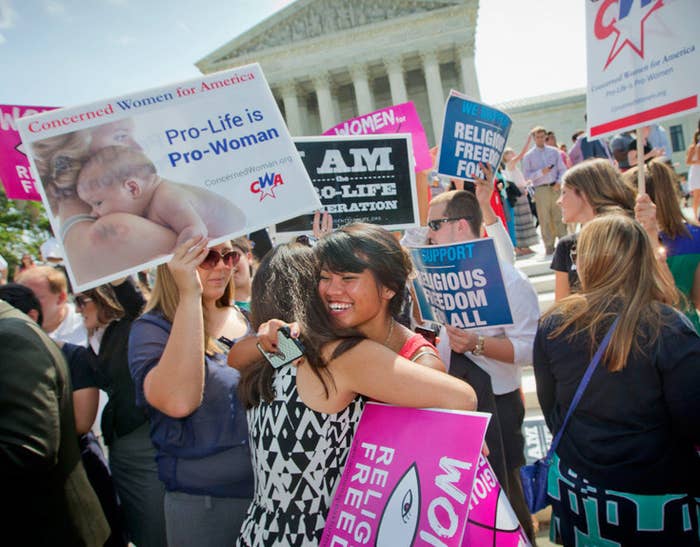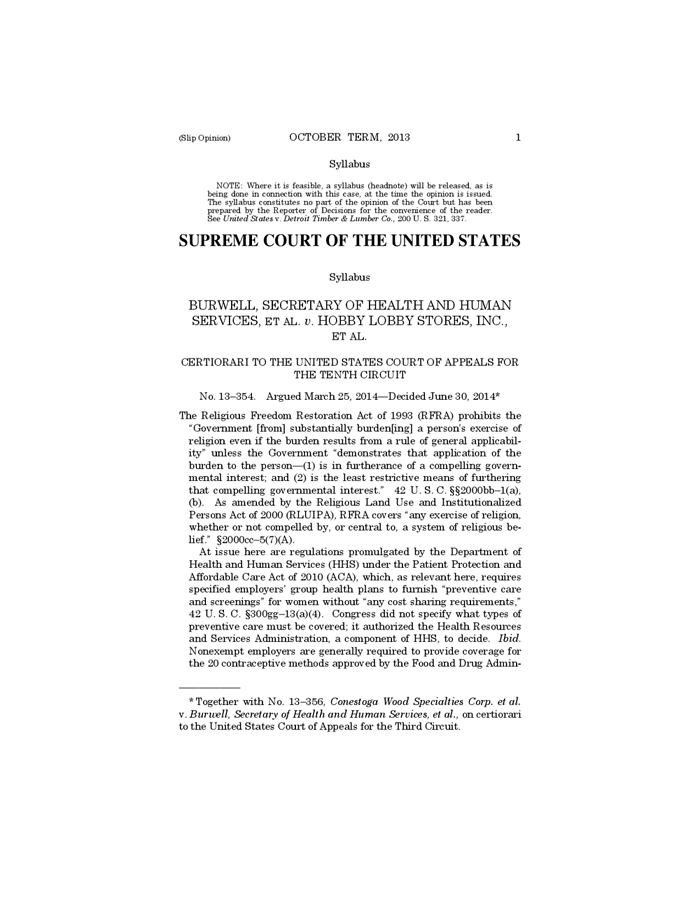
WASHINGTON — The Supreme Court ruled Monday that employers with religious objections can refuse to pay for insurance coverage for contraception.
The court's decision, written by Justice Samuel Alito, said the contraception mandate in the Affordable Care Act violates the Hobby Lobby company's rights under the Religious Freedom Restoration Act (RFRA).
The 5-4 sharply divided court held that there was no reason why corporations should be not be able to claim the protections of the RFRA and that the contraception mandate regulation that Health and Human Services issued following the passage of the Affordable Care Act violated their rights under RFRA.
Specifically, Alito found for the court that the mandate substantially burdened Hobby Lobby's exercise of religion. While assuming that the government's reason for enacting the mandate is a compelling governmental interest, the court nonetheless decided that the mandate was not the "least restrictive means" to further that interest. Specifically, Alito noted the government's exception for nonprofit corporations as proof that the government could find a less restrictive method of advancing its aims.
Justice Ruth Bader Ginsburg wrote the opinion for the four dissenting justices, arguing — in an opinion that she read from the bench — that the exemption given to Hobby Lobby here could raise questions about whether corporations could seek other health care-related exemptions — such as coverage for blood transfusions or vaccinations — or other laws — such as Title VII of the Civil Rights Act or state nondiscrimination laws.
Justice Anthony Kennedy, who joined with the court's four more conservative members, joined in Alito's opinion for the court but wrote separately to argue that "the Court's opinion does not have the breadth and sweep ascribed to it by" Ginsburg's dissenting opinion.
The case, heard by the justices in March, presented the question of how the Affordable Care Act and federal health care regulation interact with a 1993 religious freedom law.
When the HHS issued regulations, as part of the Affordable Care Act, mandating that employer-provided health insurance must include contraceptive coverage, for-profit companies had three options:
1. Providing health care coverage that includes contraceptive coverage.
2. Providing health care coverage without contraceptive coverage and paying a steep fine.
3. Not providing health care coverage, sending employees to the health care exchanges created by the Affordable Care Act, and paying a tax.
After issuing those regulations, two companies — Hobby Lobby and Conestoga Wood — sued, seeking protections under RFRA. Although the third option picked up some attention at the oral arguments in March, Alito dismissed that possibility as "unpersuasive" because the companies "have religious reasons for providing health-insurance coverage for their employees."
This "for-profit" company question is separate from ongoing cases about the ways in which religious nonprofit companies can comply with the law's exemption.

